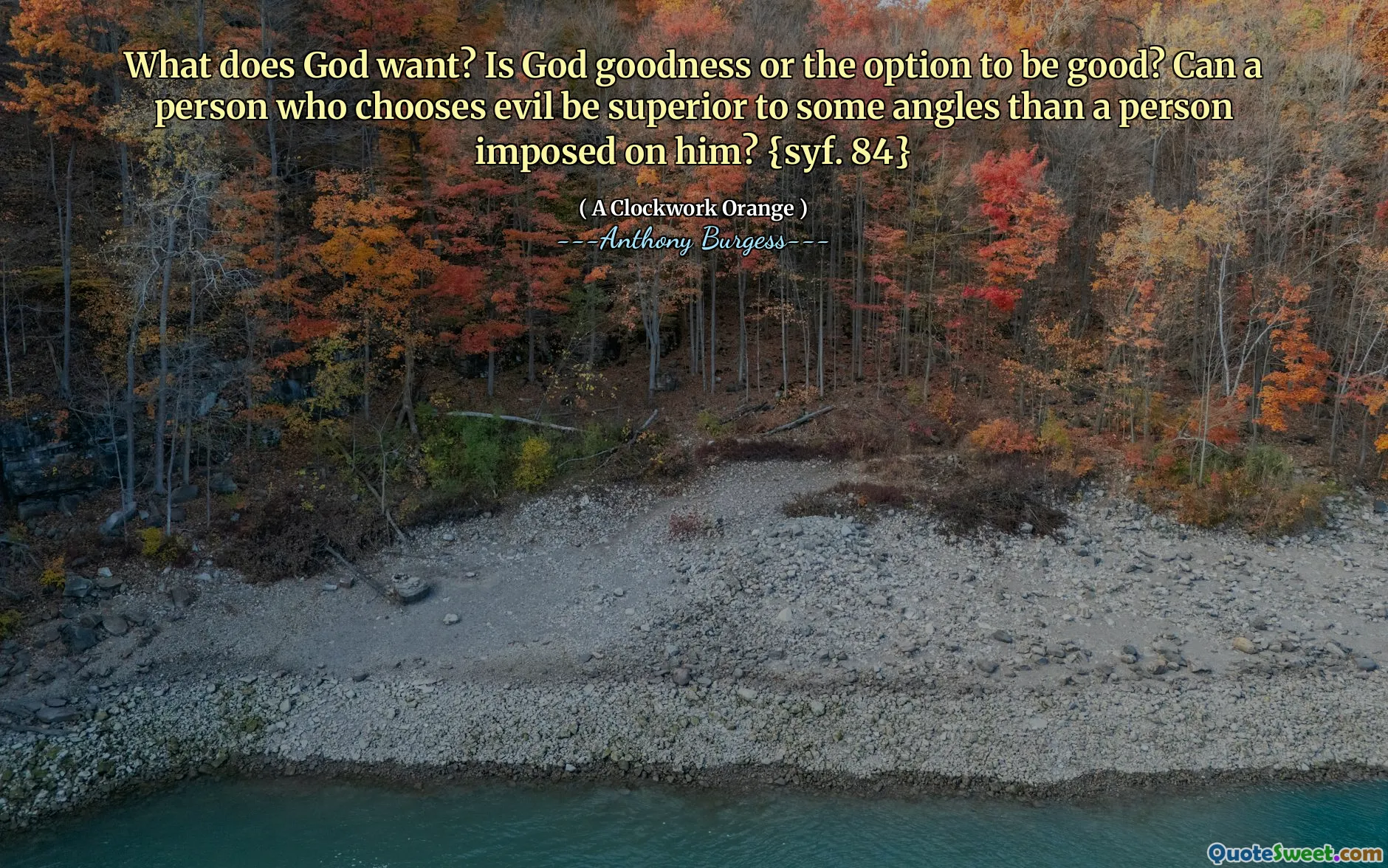
What does God want? Is God goodness or the option to be good? Can a person who chooses evil be superior to some angles than a person imposed on him? {syf. 84}
In "A Clockwork Orange" by Anthony Burgess, the exploration of free will and morality raises questions about God's intentions and the nature of goodness. The text provokes thought on whether God desires humans to choose goodness freely or if He embodies goodness itself. This distinction highlights the idea that the ability to choose between good and evil is integral to the human experience, and that true morality arises from conscious decisions rather than imposed behaviors. Furthermore, Burgess contemplates the moral superiority of individuals based on their choices. A person who deliberately chooses evil might possess a greater understanding of free will compared to someone who acts under compulsion. This notion challenges the perception of goodness, suggesting that freedom and the capacity for choice are fundamental to understanding one's moral standing, even in a flawed state of being.
In "A Clockwork Orange" by Anthony Burgess, the exploration of free will and morality raises questions about God's intentions and the nature of goodness. The text provokes thought on whether God desires humans to choose goodness freely or if He embodies goodness itself. This distinction highlights the idea that the ability to choose between good and evil is integral to the human experience, and that true morality arises from conscious decisions rather than imposed behaviors.
Furthermore, Burgess contemplates the moral superiority of individuals based on their choices. A person who deliberately chooses evil might possess a greater understanding of free will compared to someone who acts under compulsion. This notion challenges the perception of goodness, suggesting that freedom and the capacity for choice are fundamental to understanding one's moral standing, even in a flawed state of being.











